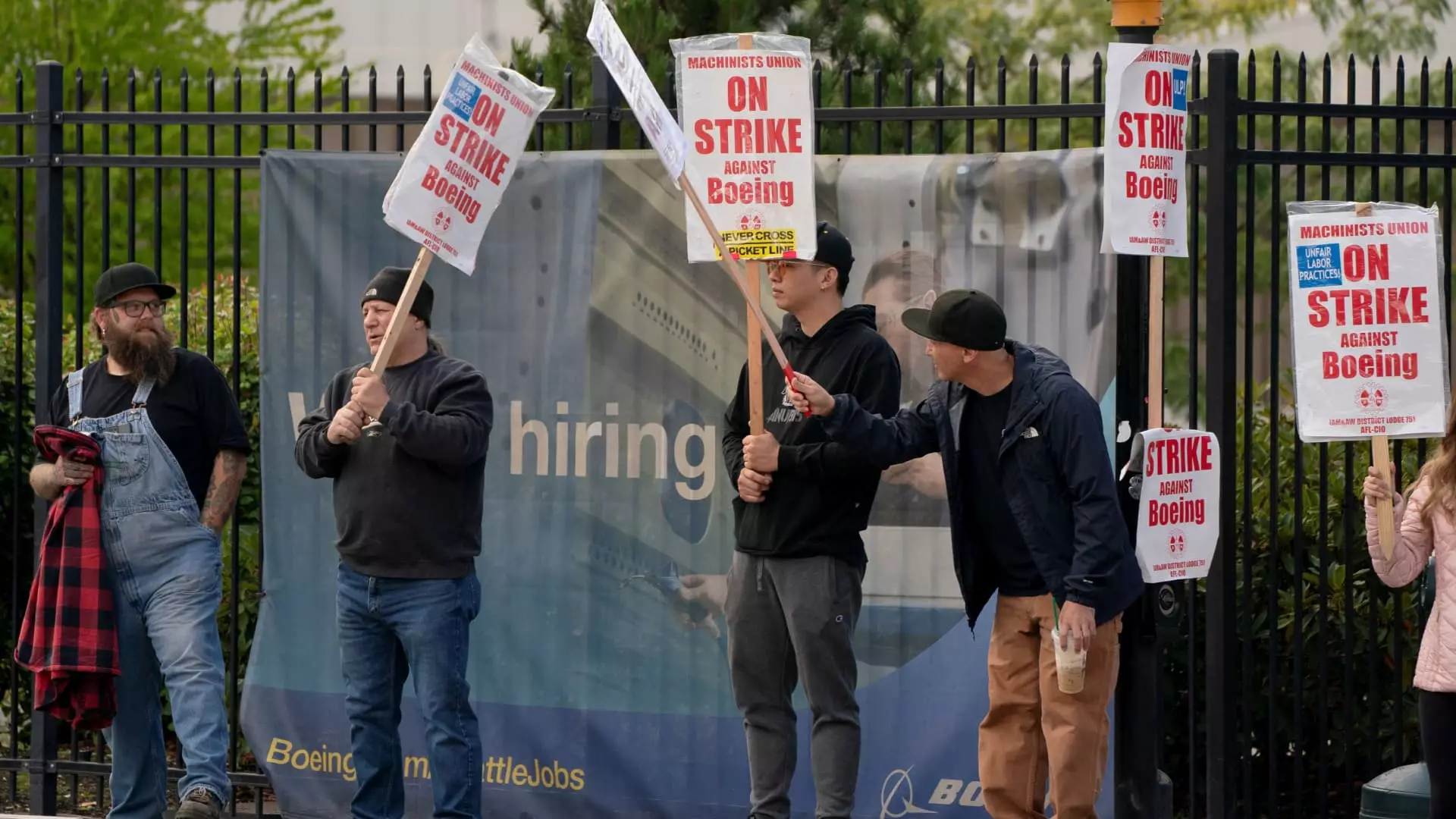Boeing, a leading aerospace manufacturer, finds itself embroiled in a significant operational challenge as more than 30,000 factory employees have initiated a strike, critically impacting aircraft production. This labor disruption has prompted the company to announce extensive financial austerity measures, which include a hiring freeze, a halt on nonessential staff travel, and cuts in supplier expenditures. Such actions reflect the company’s urgent need to conserve cash amidst escalating operational difficulties.
Details of the Strike
The strike began early Friday, following an overwhelming rejection of a tentative labor agreement by the workers, primarily located in the Seattle area. This decisive action has led to a near-total cessation of Boeing’s aircraft production, underlining the gravity of the workers’ discontent and the potential long-term consequences for the company. CFO Brian West characterized the strike as a significant threat to Boeing’s recovery trajectory, suggesting that the company’s financial health is now at risk due to the labor unrest.
Cost-Cutting Strategies
In response to the strike’s repercussions, Boeing’s leadership has outlined a series of immediate cost-cutting strategies. West noted that the manufacturer would be enacting “considerable reductions” in spending related to suppliers and would cease most purchase orders for essential aircraft models, including the 737 Max, 767, and 777. Such measures signal a stark shift in Boeing’s operational approach, driven by a necessity to navigate the complexities introduced by striking workers and their demands.
Amid these challenges, West emphasized that the company is committed to negotiating in good faith with union representatives to arrive at a new contract that captures the workers’ concerns while facilitating a return to normal operations. Furthermore, Boeing has reassured stakeholders that funding for crucial operations, particularly focused on safety and quality assurance, will remain intact, even as other areas face cuts.
The financial consequences of this strike remain variable, largely dependent on its duration. West indicated that the company is concentrating on cash conservation to mitigate potential losses. Notably, analysts are closely monitoring Boeing’s credit ratings; recent assessments by Moody’s and Fitch Ratings suggest that prolonged labor strife could lead to downgrades, increasing borrowing costs for a company already burdened by substantial debt—a situation made worse by the previous operational slowdown due to a production mishap earlier in the year.
Boeing stands at a pivotal juncture, where both immediate and long-term decisions are crucial for its survival and success. The implications of worker strikes not only jeopardize production timelines but also challenge Boeing’s financial stability. As the company grapples with these internal and external pressures, navigating negotiations effectively while implementing cost-savings measures will be paramount. The evolving landscape necessitates vigilance and adaptability as Boeing strives to regain its footing in the competitive aerospace sector. The stakes are high, and the solutions will require a delicate balance of stakeholder engagement and fiscal responsibility.


Leave a Reply